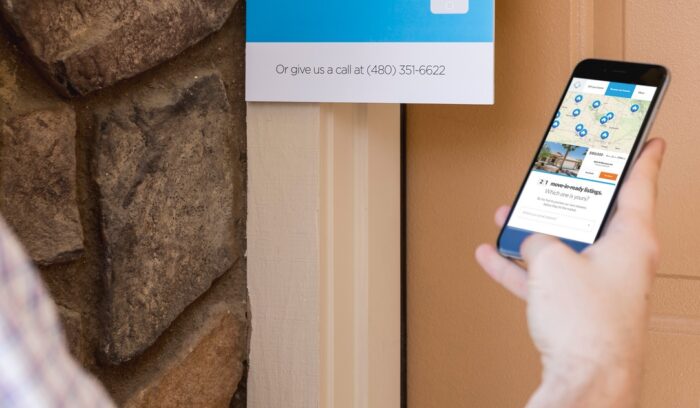
The real estate industry enjoyed decades of status quo, more than almost any other industry. Up until the last five or ten years, practitioners operated on a mixture of physical documents, traditional marketing, closed system listings services and scant data.
Consequently, the industry earned a reputation for being opaque, inconvenient, tech-phobic and consumer-ambivalent. Some practitioners bucked the trend as early tech adopters but, by and large, the industry was content to coast on its existing conditions.
That’s all starting to change now. With technology advancing at a breakneck pace and new generations entering the market, real estate is in its era of disruption. And while that might be unwelcome news for some dyed-in-the-wool agents and third parties, this era of disruption is eminently beneficial to consumers.
In this article, we explore the causes of real estate’s sea change and list a few of the innovations rocking the proverbial boat.

Why Now? The Causes of Real Estate’s Massive Transformation
Before we delve into specific innovations, let’s take an aerial view of the situation. What precipitated this current era of fast disruptive innovation? What are the leading causes and catalysts pushing real estate into the 21st century?
As many other industries have discovered, the answer is threefold: millennials, technology and the pandemic.
According to the National Association of Realtors, 2022 marked the first year when Millennial buyers outpaced other generations to become the largest buyers of real estate in the country. As such, it’s their world now. And it’s a world filled with digital tools, unorthodox business models, social media and on-demand convenience. Millennials are the “tech native” generation, and their expectations are influencing the real estate industry in a big way.
Of course, millennial influence doesn’t explain the transformation entirely. Emerging technologies have undeniable, universal benefits – even for older consumers and investors. High data volumes, sophisticated analytical tools and consumer-centric digital tools have created a very hospitable environment for buying and selling. Even without millennial meddling, it was only a matter of time before the industry warmed to these technological advancements.
Finally, you can blame the pandemic (at least partly) for catalyzing adoption. In early 2020, as many basic services migrated from brick-and-mortar to digital spaces, the real estate industry followed suit. It had no choice. Subsequently, the shift toward digital solutions and remote processes opened a floodgate of innovation. And once you open a floodgate, it’s near-impossible to close it again.
With those precipitating factors in mind, let’s look at four critical innovations currently disrupting the real estate industry: open digital marketplaces, big data, blockchain and immersive technology.
Real Estate in the Open Digital Marketplace
Most people are familiar with open digital marketplaces like eBay and sharing platforms like Uber or Airbnb that operate like transparent marketplaces. But only recently have these models been applied to real estate.
Notably, the industry is seeing disruption from companies like Nobul, which recently topped Deloitte’s Fast 50 list of the fastest-growing tech companies. Nobul’s open marketplace allows a consumer to view transparent data on real estate agents, and the company’s proprietary AI algorithm matches the consumer to relevant agents. Multiple agents then compete for the consumer’s business by offering reduced commission fees, better services, etc.
It’s a simple yet industry-changing idea that has overturned the traditional agent-consumer dynamic. As Nobul CEO Regan McGee put it to Medium, “We are the tip of the spear of disruption. We’re finally giving consumers power in this industry.”

Big Data Analytics for Even Bigger Insights
Traditionally, the real estate industry had more data than it knew what to do with – but that data laid dormant and underutilized. Recently, thanks to advances in artificial intelligence and machine learning, big data analytics is far more sophisticated, allowing investors and consumers to leverage precise insights.
As McKinsey notes, big data analytics evaluates both “traditional” and “non-traditional” data sets to zero in on the value and potential of properties. For instance, an AI tool might comb through the usual data on a property – age, location, sales history, median neighborhood income, etc. But it also looks at strange data like the average rating of nearby restaurants, the “number of permits issued to build swimming pools” nearby, how frequently people use the elevators in a building, and much more.
Together, these data sets paint a strikingly accurate portrait of how valuable a property is – and, crucially, how valuable it might one day be. In this arena, API companies like Zillow and Retsly are leading the charge.
Blockchain, Tokenization and Fraud Detection
Blockchain might have started as a crypto bedfellow, but it has recently expanded its sphere of influence. Specifically, innovators have used digital ledger technology for real estate document management, fraud prevention and “tokenization.”
Nobul, mentioned above, recently announced its partnership with IBM’s Hyperledger to help consumers manage documents. Elsewhere, smart contract companies like Vention and Quest are using blockchain as a secure way to execute contracts and reduce title fraud.
But blockchain’s big disruption is in how it is reshaping buying. Because blockchain facilitates instantaneous, third-party-free, secure transactions, the technology allows people to buy and sell small fractions of a property rather than the whole thing. Essentially, consumers can treat real estate like a penny stock investment, raising its liquidity and fundamentally transforming how we view ownership in real estate. Watch this space for major disruptions in the next decade.

Virtual Reality and Remote Buying
Lastly, virtual reality companies are disrupting real estate by facilitating an ever-increasing amount of remote buying. This phenomenon started during the early pandemic, and it hasn’t slowed since. Consumers can now view multiple homes remotely via immersive technologies like VR, drone photography and 360-degree photography.
These advancements have led to a spike in sight-unseen sales, altering the roles of real estate agents and staging experts in the transaction process. It’s too soon to tell whether these technologies are just a circumstantial trend or if they will become the norm in real estate.
The real estate industry was ripe for the picking. For too long, it remained stubbornly low-tech and challenging, leaving the door wide open for disruptive innovation. As you can see above, that door is now flooded with innovators and tech companies aiming to kick the real estate industry into the 21st century – and beyond.











